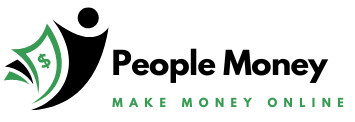Introduction
What is financial freedom?
Financial freedom is the ability to live a life free from financial stress and constraints. It means having enough money to cover your expenses, achieve your goals, and enjoy the things that matter most to you. Financial freedom is not about being wealthy or having an unlimited amount of money, but rather about having control over your finances and the ability to make choices that align with your values and priorities. It is about feeling secure and confident in your financial future, knowing that you have the resources and flexibility to live life on your own terms.
Why is financial freedom important?
Financial freedom is important for several reasons. Firstly, it allows individuals to have control over their own financial destiny. With financial freedom, individuals have the power to make decisions that align with their values and goals, without being restricted by financial constraints. Secondly, financial freedom provides a sense of security and peace of mind. Knowing that one has enough savings and investments to sustain their desired lifestyle brings a sense of stability and reduces financial stress. Additionally, financial freedom opens up opportunities for personal growth and fulfillment. It enables individuals to pursue their passions, explore new ventures, and take calculated risks without the fear of financial setbacks. Ultimately, achieving financial freedom can lead to a more fulfilling and balanced life.
Benefits of achieving financial freedom
Achieving financial freedom comes with numerous benefits that can positively impact every aspect of your life. Firstly, it provides you with a sense of security and peace of mind, knowing that you have enough money to cover your expenses and emergencies. Financial freedom also allows you to have more control over your life and make choices based on your values and priorities rather than being limited by financial constraints. Additionally, it opens up opportunities for personal and professional growth, as you are no longer bound by the need to work solely for income. You can pursue your passions, start your own business, or take risks without the fear of financial instability. Moreover, achieving financial freedom enables you to build wealth and create a legacy for future generations. It gives you the freedom to enjoy life and pursue your dreams, whether it’s traveling the world, supporting causes you care about, or spending quality time with loved ones. Overall, the benefits of achieving financial freedom are far-reaching and can lead to a fulfilling and abundant life.
Assessing Your Current Financial Situation
Calculating your net worth
Calculating your net worth is an essential step in starting your journey towards financial freedom. It involves determining the difference between your assets and liabilities, giving you a clear picture of your overall financial health. By calculating your net worth, you can identify areas where you can improve and make necessary adjustments to achieve your financial goals. This process allows you to track your progress over time and make informed decisions about saving, investing, and managing your money. Taking the time to calculate your net worth is a crucial first step towards gaining control over your finances and setting yourself up for long-term success.
Analyzing your income and expenses
Analyzing your income and expenses is a crucial step in starting your journey towards financial freedom. By thoroughly examining your sources of income and tracking your expenses, you can gain a clear understanding of where your money is coming from and where it is going. This analysis allows you to identify areas where you can cut back on spending and find opportunities to increase your income. It also helps you create a realistic budget that aligns with your financial goals. Taking the time to analyze your income and expenses sets the foundation for making informed financial decisions and ultimately achieving financial freedom.
Identifying your financial goals
Identifying your financial goals is a crucial step towards achieving financial freedom. Take some time to reflect on what you truly want to achieve in terms of your finances. Whether it’s buying a house, saving for retirement, or starting your own business, having clear and specific goals will help guide your financial decisions and actions. It’s important to set both short-term and long-term goals, as they provide a roadmap for your financial journey. Once you have identified your goals, you can then create a plan to work towards them, whether it’s through budgeting, investing, or increasing your income. Remember, your financial goals should be personal and aligned with your values and aspirations. By identifying your financial goals, you are taking the first step towards gaining control over your finances and ultimately achieving financial freedom.
Creating a Budget
Understanding the importance of budgeting
Budgeting is a crucial aspect of achieving financial freedom. It involves tracking and managing your income and expenses to ensure that you are spending within your means and saving for the future. By understanding the importance of budgeting, you can gain control over your finances and make informed decisions about where your money goes. A well-planned budget allows you to prioritize your financial goals, whether it’s paying off debt, saving for a down payment on a house, or investing for retirement. It also helps you identify areas where you can cut back on unnecessary expenses and allocate more funds towards your long-term objectives. With a solid budget in place, you can take the necessary steps towards achieving financial freedom and creating a secure financial future for yourself and your family.
Tracking your expenses
Tracking your expenses is a crucial step in starting your journey towards financial freedom. By keeping a record of where your money is going, you can identify areas where you may be overspending and make necessary adjustments. This allows you to gain a better understanding of your spending habits and take control of your finances. Whether you choose to use a budgeting app, a spreadsheet, or simply pen and paper, tracking your expenses provides valuable insights that can help you make informed decisions about your money. It is an essential tool for setting financial goals, creating a realistic budget, and ultimately achieving financial independence.
Setting realistic financial goals
Setting realistic financial goals is an essential step towards achieving financial freedom. When setting goals, it is important to be practical and consider your current financial situation. Start by evaluating your income, expenses, and debts, and then identify areas where you can make improvements. It is also crucial to set specific, measurable, achievable, relevant, and time-bound (SMART) goals. By setting realistic financial goals, you can create a roadmap for your journey towards financial freedom and stay motivated along the way.
Reducing Debt and Saving Money
Developing a debt repayment plan
Developing a debt repayment plan is a crucial step in starting your journey towards financial freedom. It involves creating a strategy to pay off your debts systematically and efficiently. By prioritizing your debts and allocating a portion of your income towards repayment, you can gradually reduce your debt burden and gain control over your finances. It is essential to assess your current financial situation, identify your debts, and set realistic goals for debt repayment. Additionally, exploring options such as debt consolidation or negotiating with creditors can help accelerate your progress. Developing a debt repayment plan sets the foundation for your financial journey, allowing you to take control of your money and work towards a debt-free future.
Strategies for saving money
Saving money is an essential step on the journey towards financial freedom. By implementing effective strategies for saving, you can build a solid foundation for your financial future. One strategy is to create a budget and track your expenses, allowing you to identify areas where you can cut back and save. Another strategy is to automate your savings by setting up automatic transfers from your checking account to a savings account. This ensures that a portion of your income is consistently saved without you having to think about it. Additionally, it is important to prioritize saving by making it a non-negotiable part of your financial plan. By adopting these strategies and being disciplined in your saving habits, you can make significant progress towards achieving financial freedom.
Building an emergency fund
Building an emergency fund is a crucial step in starting your journey towards financial freedom. Life is full of unexpected events and having a safety net to fall back on can provide peace of mind and financial security. An emergency fund acts as a buffer, allowing you to handle unexpected expenses, such as medical bills, car repairs, or job loss, without going into debt or relying on credit cards. By setting aside a portion of your income regularly, you can gradually build up your emergency fund and protect yourself from financial setbacks. It is recommended to aim for at least three to six months’ worth of living expenses in your emergency fund. Start small and be consistent, and over time, you will have a solid foundation to weather any financial storm that comes your way.
Investing for the Future
Understanding different investment options
Understanding different investment options is crucial when starting your journey towards financial freedom. With a wide range of options available, it’s important to have a clear understanding of each investment type and its associated risks and rewards. From stocks and bonds to real estate and mutual funds, each option offers unique opportunities for growth and income. By educating yourself on these options, you can make informed decisions that align with your financial goals and risk tolerance. Whether you’re a beginner or an experienced investor, taking the time to understand different investment options is an essential step towards achieving financial independence.
Creating an investment portfolio
Creating an investment portfolio is an essential step towards achieving financial freedom. It involves carefully selecting a diverse range of assets, such as stocks, bonds, and real estate, to maximize returns and minimize risks. A well-constructed investment portfolio can provide a steady income stream, help build wealth over time, and provide a cushion against economic downturns. It is important to research and analyze different investment options, consider one’s risk tolerance and financial goals, and regularly review and adjust the portfolio to ensure it remains aligned with one’s changing circumstances. By creating an investment portfolio, individuals can take control of their financial future and work towards achieving long-term financial stability and independence.
Diversifying your investments
Diversifying your investments is a crucial step towards achieving financial freedom. By spreading your investments across different asset classes, industries, and geographical locations, you can reduce the risk associated with any single investment. Diversification allows you to take advantage of the potential growth in different sectors while minimizing the impact of any potential losses. It also helps you navigate through market fluctuations and economic downturns. By diversifying your investments, you are not putting all your eggs in one basket, but rather creating a well-balanced portfolio that can withstand various market conditions. So, whether it’s investing in stocks, bonds, real estate, or other assets, remember to diversify your investments to increase your chances of long-term financial success.
Continuing Education and Personal Development
Importance of financial literacy
Financial literacy plays a crucial role in our journey towards financial freedom. It is the foundation upon which we can make informed decisions about our money and take control of our financial future. Having a good understanding of financial concepts and principles allows us to manage our finances effectively, budget wisely, and make wise investment choices. Without financial literacy, we may fall into debt, make poor financial decisions, and struggle to achieve our financial goals. Therefore, it is essential to prioritize financial literacy and continuously educate ourselves to improve our financial well-being.
Learning about personal finance
Learning about personal finance is the first step towards achieving financial freedom. It involves gaining knowledge and understanding of various financial concepts such as budgeting, saving, investing, and managing debt. By learning about personal finance, individuals can make informed decisions about their money and develop healthy financial habits. This knowledge empowers them to take control of their financial future and work towards their financial goals. Whether it’s learning about the importance of creating a budget or understanding the different investment options available, educating oneself about personal finance is essential for anyone who wants to start their journey towards financial freedom.
Investing in yourself
Investing in yourself is a crucial step towards achieving financial freedom. By focusing on personal growth and development, you can acquire the skills, knowledge, and mindset needed to succeed in the ever-changing world of finance. This can involve pursuing higher education, attending workshops and seminars, or even hiring a mentor or coach. By investing in yourself, you are essentially betting on your own abilities and potential, which can lead to greater opportunities and financial success in the long run.




